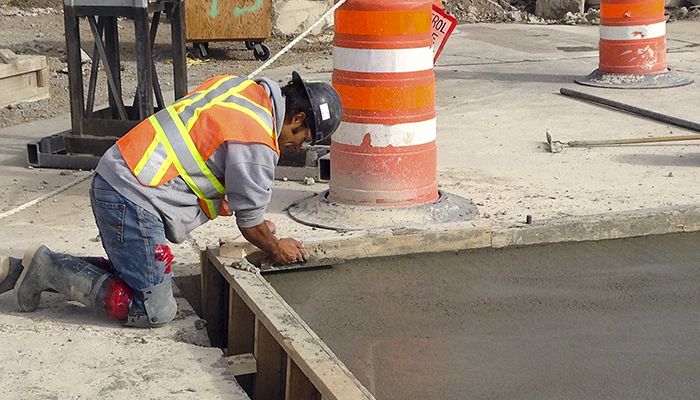What is The Grace Period in Two-Wheeler Insurance Renewal?

Two-wheeler insurance policies are effective insurance products to ensure our bikes are safe from any unprecedented events on the road. In addition, scooter insurance policies will help you deal with any damages that your vehicle has suffered from accidents or natural disasters, along with protection from financial losses caused due to third-party liability. If you have insurance for your bike, you will not have to worry about any damages to your vehicle.
To ensure your bike stays protected from unprecedented events, you must maintain the policy active by carrying out the two-wheeler insurance renewal on time.
What Is Two-Wheeler Insurance Renewal?
A bike insurance renewal is a process through which you get the ability to keep your bike insurance policy active. When your policy stays active, you get the financial protection to deal with accidents, theft, etc. A two-wheeler insurance renewal is also a great time to improve the coverage offered by your insurance policy.
Many insurers like Tata AIG allow their customers to carry out the bike insurance renewal online. With an online renewal, you can visit the official website of your insurer and conduct the insurance renewal by following a few easy steps. Insurers have made these provisions to help customers carry out the renewal with ease.
While renewing the plan is quite simple these days, you may forget to do so on time. When you do not renew your plan on time, your plan will expire.
Grace Period In Two-Wheeler Insurance
The grace period is an extension offered by insurance companies that begins after a bike insurance plan’s expiration. Most insurers offer the bike insurance grace period to help you protect your plan. With a grace period, you get an extension for carrying out the two-wheeler insurance renewal. For example, the grace period in a bike insurance policy is generally 15-30 days. However, the duration will be different for different insurers. You must ask your insurer about the grace period offered while purchasing the plan. Here are some of the benefits you get with the grace period:
- Protection of NCB: When your plan expires, your accumulated NCB discount will expire with it. This way, you will lose out on the discount you have gathered over the years. However, if you renew your policy within the allotted grace period, you get an opportunity to protect your accumulated NCB.
- Bike inspection: When you renew your bike insurance policy after it has expired, your insurance company will inspect your vehicle before offering you a plan. With the inspection, your insurer may find certain issues in your bike due to basic wear and tear. This may lead to a hike in your premium amount. When you renew your insurance plan in the grace period, your bike will not be inspected, and you will be levied the normal premium amount.
What Happens When Your Bike Insurance Expires?
Listed below are some of the drawbacks of an expired bike insurance plan:
- Fines and penalties: If your bike insurance plan has expired, you will have to pay a fine for driving your two-wheeler with an expired insurance plan. You may also face jail time up to three months if you’re holding an expired bike insurance plan. This is because riding your bike without an insurance plan is against the law. Any penalties that you may face are retained in your bike insurance history, which may affect you when you’re renewing the two-wheeler bike insurance plan.
- Paying for damages by yourself: if your bike is involved in any accidents or is stolen during this period, you will not get the financial coverage for dealing with the damages. Therefore, it is optimal to undertake the bike insurance renewal on time.
- Losing the privileges from your insurer: If you do not renew the policy on time, you may lose all the privileges your insurer offers you for your bike. Apart from losing the insurance coverage, you will also lose out on the accumulated NCB. This way, you will not be able to reduce your premium amount for your bike insurance plan.
- Buying a new policy: Once your bike insurance has expired, you will have to go through the entire rigmarole of purchasing a new bike insurance plan. Purchasing a new bike insurance plan can be quite stressful, as you will have to go through the entire process once again.
What Should You Do When Your Bike Insurance Has Expired?
If your bike insurance has expired, you must follow the steps given below:
- Do not drive: Driving without a valid bike insurance plan is against the law. However, if you’re caught driving your car without valid insurance for your bike, you may be levied hefty fines by the road officials.
- Review your insurance plan: You must review your plan before renewing it. Reviewing the policy will help you get better coverage for your bike.
- Contact your insurer: Once the policy has expired, you must contact your insurer and ask about the grace period.
Conclusion
Renewing your bike insurance plan on time will help you get continued protection for your vehicle. However, if you haven’t renewed your plan on time, your policy will expire. With an expired policy, you will not be protected if your vehicle is damaged, and you will lose out on all the accumulated NCB. To help customers protect their policy, insurers offer a grace period. The grace period offers you a second chance to renew your plan on time and protect your accumulated NCB.




